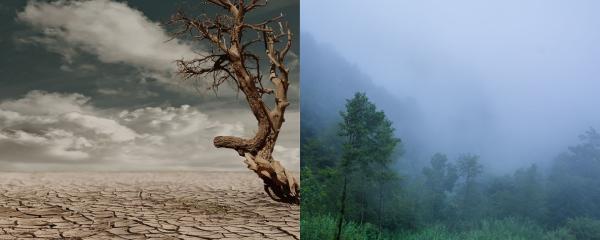
IIT Palakkad study shows how different indices used to predict drought combined with effects fof climate change can lead to different climate predictions for the future

IIT Palakkad study shows how different indices used to predict drought combined with effects fof climate change can lead to different climate predictions for the future
Scientists from Centre for Glaciology, Wadia Institute of Himalayan Geology, Dehradun, Wilfrid Laurier University, Waterloo, Canada, Chhattisgarh Council of Science and Technology, Raipur and National Centre for Antarctic and Ocean Research, Goa studying the surge-type glaciers in Karakoram have noticed irregular behaviour among some of the glaciers in Karakoram. They have now carried out a comprehensive study to try and answer some of the anomalies.
Scientists from National Center for Biological Sciences, Wildlife Conservation Trust, FERAL and University of Montana, examine genetic diversity of tigers in India to identify the importance of connected forest corridors to future populations and minimize their risk of extinction in the coming century.
A new study by researchers from Indian Institute of Technology Bombay, Mumbai has, for the first time, demonstrated an efficient way to convert garden waste into fuel pellets that could be used for cooking.
Researchers from the Indian Institute of Tropical Meterology, Pune, study how carbonaceous aerosols affect the different layers of our atmosphere. They find that these aerosols can have far reaching effects like instabilities in the mid to upper troposphere, bringing about a change in the rainfall patterns and causing abnormal heating of the atmosphere through radiation
On January 31st starting at around 17:18 IST, India will witness a rare celestial event-- a total lunar eclipse coinciding with a supermoon and a blue moon.
A lunar eclipse occurs when the earth comes in between the sun and the moon, casting its shadow on the moon. This is called a total lunar eclipse.
After a successful first edition, the second edition of the Nobel Prize Series-India is all set to kick off tomorrow at the Kala Academy in Panaji, Goa. The event is jointly organized by the Department of Biotechnology (DBT), Ministry of Science and Technology, India along with the Government of Goa and Nobel Media AB.
While the country struggles with various problems related to waste management, scientists from the Indian Institute of Technology, Bombay, have come up with a novel solution to turn waste to wealth. The researchers develop a method to generate energy from landfill leachate and microbial fuel cells.
New data gathered by researchers from University of Amsterdam (UvA), over a period of several years from slums across Bengaluru could help in understanding and tackling poverty in India.
Earlier this month, we erred. Among the 1000+ articles published on Research Matters, it was the first for us. An alert reader expressed displeasure on Twitter with a hashtag #fakescience on one of our stories. Alarmed, we investigated to note that the story was based on a research paper published in a journal listed as ‘predatory’, and with that, found a lot more about the prevalence of ‘predatory’ journals that hound the world of science.